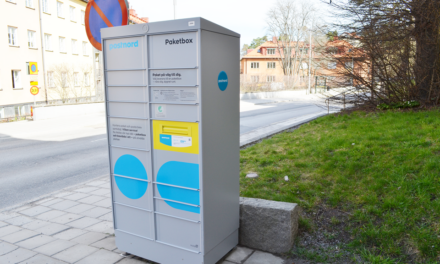
U.S. Postal Service looks ahead
A presidential commission recommended a series of changes to the U.S. Postal Service on Thursday, including expanding efforts to move basic postal services out of traditional post offices and into banks, groceries or drug stores.
In a 181-page report, passed after eight months of research, the commission suggests that once basic services become available elsewhere, the Postal Service should be able to reassess whether or not smaller offices are still necessary to fulfill the obligation each facility provides for its region. If not, according to the report, the Postal Service should be able to do away with an office as it sees fit.
Betsy Holahan, a spokeswoman for the U.S. Department of the Treasury, which worked with the commission, would not speculate on when these recommendations — if any of them — would be implemented at the local level. Once they come down, though, it could mean a change in postal services in the Triangle and the state, including the closing or consolidation of some familiar local offices.
The Postal Reorganization Act of 1970 prohibits the closing of small post offices simply for operating at a deficit, but one of the commission’s recommendations calls for removing that prohibition, Holahan said. The lifting of that ban would require new legislation to be passed through Congress, she said.
The effort to move postal services from the post office has already begun.
Today, according to the report, 5,000 grocery stores, Wal-Mart stores and banks perform basic postal services. People can also buy stamps at 17,000 ATMs, through the mail and over the Internet. Self-service kiosks provide First-Class Mail, Priority Mail and other services.
The report even alludes to a possible future elimination of traditional post offices altogether, stating, “Special trips and afternoon lines all could become as thing of the past.”
None of these recommendations will be acted upon without the approval of President Bush, whose administration will now begin reviewing the report. No decisions about where offices should be closed or consolidated have been made and won’t be until more studies are done.
Postal officials in the Triangle and state said they didn’t know what impact the commission’s work could have on whether smaller offices or those that lose money are closed.
“I’d hate to see it done,” said Marylene McCain, postmaster of the Prospect Hill Post Office, which serves a community in rural Caswell County. “[But] there’s nothing I can do about it.”
Efforts to do away with “low-activity” post offices in the past have been met with opposition .
Bridget Lowell, a spokeswoman for U.S. Rep. David Price, said Price recently fought to keep open a post office in Bynum, south of Chapel Hill , because it was considered a community hub.
“Post offices are not just facilities,” Lowell said. “Post offices serve multiple needs for the community.”













